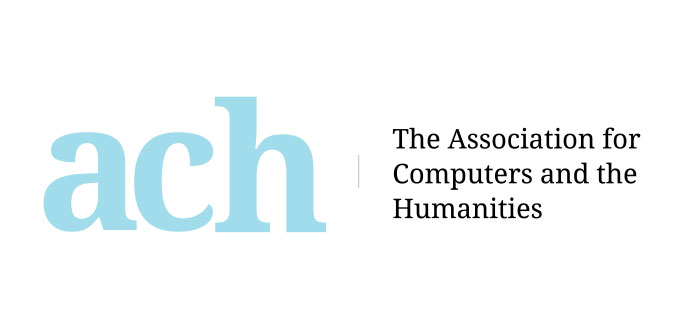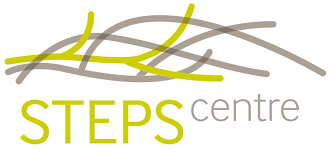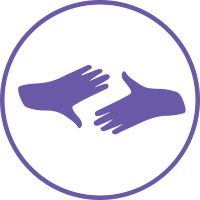Toolkit
4.4 Ethical Reseach Practices
| The final page of this section introduces some ethical research practices that are useful in digital scholarship. The first part called Inclusive Terminology in Technology includes two different resources, both of which aim to deconstruct the harmful stereotypes perpetuated in the terminology and foster equality and diversity in the field of technology. The second part presents two useful decolonizing research practices that researchers can adopt: the 5 key points for decolonizing research methodologies, which the STEPS center incorporated in their research, and the 7-Questions-Model by Mary Shell-Weiss. |
Inclusive Terminology in Technology
|
|
The Inclusive Naming Initiative, launched by the Cloud Native Computing Foundation (CNCF) in 2021, aims to incorporate inclusive language across the industry. It was prompted by the increased awareness of diversity issues following the Black Lives Matter movement, which also impacted the open-source community. The Initiative's mission is to promote and facilitate replacing harmful and exclusionary language in information technology. Furthermore, the Initiative is working with standards development organizations (e.g. the IEEE) by providing them resources to standardize inclusive terminology in technology worldwide. So far, it has produced useful resources such as word replacement lists, an implementation pathway, and a language framework. |
|
Toward anti-racist technical Terminology "Toward anti-racist technical Terminology", published by The Association for Computers and the Humanities (ACH) and produced by a working group led by CDH lead developer Rebecca Sutton Koeser is a guide to help people in the field of digital humanities to use more inclusive language. The guide is intended to help people understand how language can be used to perpetuate racism and how it can be used to combat it. It provides a set of guidelines for using more inclusive language as well as alternatives for problematic terms in technical writing as well as other forms of communication. |
|
 |
Why use inclusive terminology?
Language shapes our worldview and can create and reinforce expectations, stereotypes, and even prejudice, so it is important to take extra care in choosing words and phrases when writing. Metaphors rooted in oppression, ableism, and colonialism are also prevalent in language, particularly in technical communities. Exclusive language can hurt and alienate people, making them feel rejected and not part of a group or team. Terms like "master/slave" are quite obvious in the damage they do by normalizing slavery. Other terms like "blacklist" and "whitelist" may seem less loaded at face value, but they perpetuate the idea that "white" is good and "black" is bad. More often than not, these "metaphors" are not only exclusionary but also unclear in their meaning.
Inclusive terminology, on the other hand, not only promotes equality and diversity in society and the workplace but is often clearer and more precise in its explanatory effect. This should not only be applied to general academic writing but also to coding - as the two examples below confirm.
Decolonizing Research Practices
|
The STEPS Centre (Social, Technological, and Environmental Pathways to Sustainability) was an interdisciplinary research and policy center hosted by the Institute of Development Studies (IDS) and the Science Policy Research Unit (SPRU) at the University of Sussex. The website is still active today. Its mission was to address global challenges related to science, technology, and innovation to promote sustainable development. The center focused on the politics of sustainability transformation, emphasizing the importance of inclusive and democratic processes. From 2018-2021, they actively worked on 4 themes: Transformations, Uncertainty, Nature and Methods. The last theme addresses the question of how to decolonize research. In their blogpost 'How Do We 'Decolonize' Research Methodologies?', they identify 5 entry key points to decolonize their research methods. |
|
 |
|
The 7-Question Model by Melanie Shell-Weiss In the chapter “The Power of Narrative: A Practical Guide to Creating Decolonial, Community-Based Projects”, Melanie Shell-Weiss introduces The 7-Question Model for narrative-based projects that apply feminist and decolonial practices. The model emphasizes the process and purpose of the project, encouraging careful reflection on the intentions, positionality, and roles of all participants. The questions also consider the larger relationships and obligations between participants, both in the present and future. This approach recognizes the importance of collaboration and fosters a deeper understanding of ethics rooted in intercultural dialogue rather than existing boundaries. By engaging in dialog with community partners and collaborators, the researcher/practitioner can navigate the complexities of sharing recorded stories, interviews, and oral histories in a way that respects the involved individuals and their communities. The details and explanation of each question can be found in the full text of the chapter. |
Why does decolonizing research matter?
Decolonizing research involves challenging the North's dominant position in knowledge production. In the realm of research, this entails employing approaches that capture the local context and give priority to the needs, experiences, and beliefs of the research participants. The goal of decolonized research is to challenge the cognitive injustice in knowledge production by valuing local culture and knowledge. It aims to amplify indigenous voices and narratives and promote culturally sensitive knowledge production that originates from the community itself rather than being about the community. Furthermore, northern-oriented research practices tend to overlook the unique experiences and perspectives of people in the global South, leaving a considerable part of human history and narratives disregarded.


